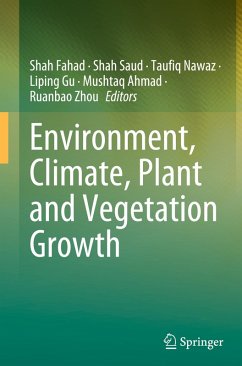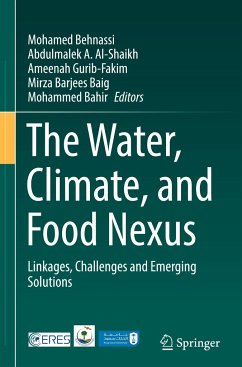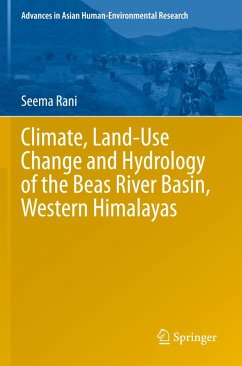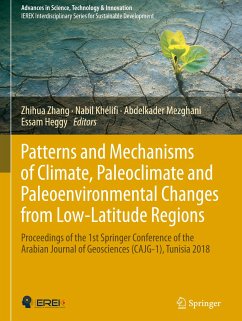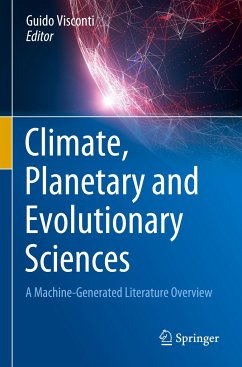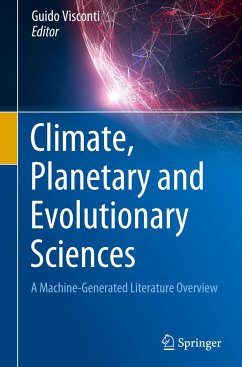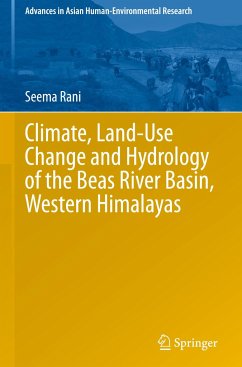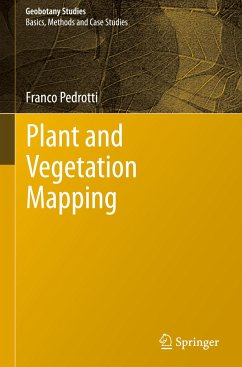Dr. Shah Fahad has completed PhD in 2015 in the field of Agronomy and Crop Physiology (Climate Change) from Huazhong Agricultural University, Wuhan, China. Later, he completed his postdoctoral research in the field of Crop physiology and Climate change from Huazhong Agricultural University, Wuhan, China. Presently he is serving in Agriculture department, University of Swabi, Pakistan. His research work encompasses plant stress physiology and antioxidant metabolism, coping with weather adversity and adaptation to climatic variability. Dr. Shah Fahad has published over 203 articles in peer-reviewed journals having an impact factor of 447.65. He has edited 5 books, handwritten 20 book chapters on important aspects of plant physiology, plant stress tolerance, and crop production. According to Google Scholar Citation, Dr. Shah Fahad's publications have received about 4430 citations with an h-index of 34 and i10- index of 104. He is an editor and reviewer for more than 10 peer-reviewed international journals and was a recipient of the Publons Peer Review Award 2019. He has been honored by different authorities for his outstanding performance in different fields like research and education and received the Young Rice Scientist Award in 2014 and Distinguish PhD Scholar of Huazhong Agricultural University in 2015. Dr. Shah Fahad has won 9 International and 3 National projects. Dr. Mirza Hasanuzzaman is Professor of Agronomy at Sher-e-Bangla Agricultural University in Dhaka. He received his PhD on "Plant Stress Physiology and Antioxidant Metabolism" from Ehime University, Japan, with a scholarship from the Japanese government (MEXT). Later, he completed his postdoctoral research at the Center of Molecular Biosciences, University of the Ryukyus, Japan, as a recipient of the Japan Society for the Promotion of Science (JSPS) postdoctoral fellowship. He was also the recipient of theAustralian Government's Endeavour Research Fellowship for postdoctoral research as an Adjunct Senior Researcher at the University of Tasmania, Australia. Dr. Hasanuzzaman's current work is focused on the physiological and molecular mechanisms of environmental stress tolerance. Dr. Hasanuzzaman has published over 80 articles in peer-reviewed journals. He has edited 6 books and written 30 book chapters on important aspects of plant physiology, plant stress tolerance, and crop production. According to Scopus, Dr. Hasanuzzaman's publications have received about 3000 citations with an h-index of 27. He is an editor and reviewer for more than 50 peer-reviewed international journals and was a recipient of the Publons Peer Review Award 2017 and 2018. Dr. Hasanuzzaman is a Member of Editorial Advisory Board of Plant Physiology and Biochemistry (Elsevier). He has been honored by different authorities for his outstanding performance in different fields like research and education and received theWorld Academy of Science Young Scientist Award in 2014. Prof. Mukhtar Alam, Dean Faculty of Sciences and Pro-Vice Chancellor of the University of Swabi, Khyber Pakhtunkhwa born in 1965. He earned his PhD in the year 1995 from the University of Wales, Aberystwyth, UK on the Ministry of Education, Pakistan Merit Scholarship. He served for more than 10 years in Civil Services of Pakistan. He has been associated with Teaching, Research and Administration in the field of Biological Sciences. He is the member of national and international organizations. He wrote multiple books on Agriculture and is the author of more than 100 articles. As a key speaker he attended international conferences, congress, symposia and workshops. He organized international level conferences in home country. He secured funding of million dollars from national and international organizations. During his professional career he holds the position of Vice Chancellor, Dean, Chairman, Coordinator, Director R&D, Additional Registrar, Deputy Director Oil Board and Section Officer. Dr. Hidayat Ullah (Associate Professor) associated with teaching and research in the University of Swabi, Khyber Pakhtunkhwa. He was born in 1979 and earned his PhD in the year 2011 from the University of Agriculture, Peshawar as Indigenous Fellow of the Higher Education Commission of Pakistan. As a visiting scholar, he contributed towards the legume genome at Southern Illinois University, Carbondale, USA. In the year 2014 he was awarded the prestigious Executive Endeavour Fellowship by the Ministry of Tourism and International Education, Government of Australia. He has been the Author of more than 50 peer-reviewed articles. Recently, he has been nominated by the Government of China for the post-doctoral studies under the Talented Young Scientist Program. Previously, he served in the Department of Agriculture Extension, Nuclear Institute for Food & Agriculture, Philip Morris International Pakistan, Plant Breeding Institute-University of Sydney and Legume Genomic Lab., Southern Illinois University, Carbondale-USA. Dr. Muhammad Saeed is an Associate Professor at the Department of Agriculture, Swabi University, Pakistan. He received his PhD in Agriculture Entomology from Gomal University D. I. Khan, Pakistan. His research interests include Population Dynamics, Molecular Characterization and Management of different insects in different plants. Dr. Muhammad Saeed is a member of several societies like Royal Entomological Society of London, Entomological Society of America (ESA), Entomological Society of Canada and The Pan-Pacific Entomological Society of California. He has supervised three M.S. students and 1 PhD student as the main supervisor. He has written for about 50 publications (journals and books) and has edited 11 books. Dr. Imtiaz Ali Khan is Professor, Department of Entomology at the University of Agricultural University, Peshawar, Pakistan. Currently he is working as a Vice Chancellor of Swabi University, Khyber Pakhtunkhwa, Pakistan. He received his PhD in 2003 from the University of Bonn, Germany. Dr. Imtiaz Ali Khan has been involved in research with IPM of insect and mite pests of fruits, vegetables and field crops since 2003. He has completed several national and international research projects. Dr. Imtiaz Ali Khan has published 110 articles and chapters related to IPM, plant physiology and environmental stresses with Springer, Elsevier, and Wiley, etc. He has supervised 30 M.S. students and 9 PhD students as the main supervisor. He is involved in editorial activities and is a reviewer for a number of international journals. Dr. Muhammad Adnan is a lecturer in the Department of Agriculture at the University of Swabi (UOS), Pakistan. He has completed his PhD (soil fertility and microbiology) from the Department of Soil and Environmental Sciences (SES) the University of Agriculture Peshawar, Pakistan and Department of Soil, Plant and Microbial Sciences, Michigan State University, USA. He has received his MSc and BSc (Hons) in Soil and Environmental Sciences, from Department of SES the University of Agriculture, Peshawar-Pakistan. Dr. Adnan main research interests are soil microbiology & plant nutrition including fertilizer use efficiency, N losses, management of legume N2 fixation for increasing cereal production and management of organic wastes for sustainable agriculture production. He has published over 84 peer-reviewed articles, 03 book chapters, edited one book and has received over 2.4 million PKR in research funding as a Co -PI. He has presented his research work in 7 international and 6 national conferences. He is also organized two national and 3 international conferences at Pakistan. He is the member of Canadian Society of Soil Sciences, Soil Science Society of Pakistan, Weed Science Society of Pakistan and was a member (2014-16) BOS Department of Geology UOS and currently as a BOS member of Department of Environmental Sciences UOS. Mr. Muhammad Adnan is the recipient of three Gold medals [one in BSc and two in MSc (Hons)], President of Pakistan award [BSc Hons)], Indigenous PhD scholarship and IRSIP grant for Michigan State University USA in his educational carrier. He was also awarded Best University researcher award for the year 2015 by UOS.





